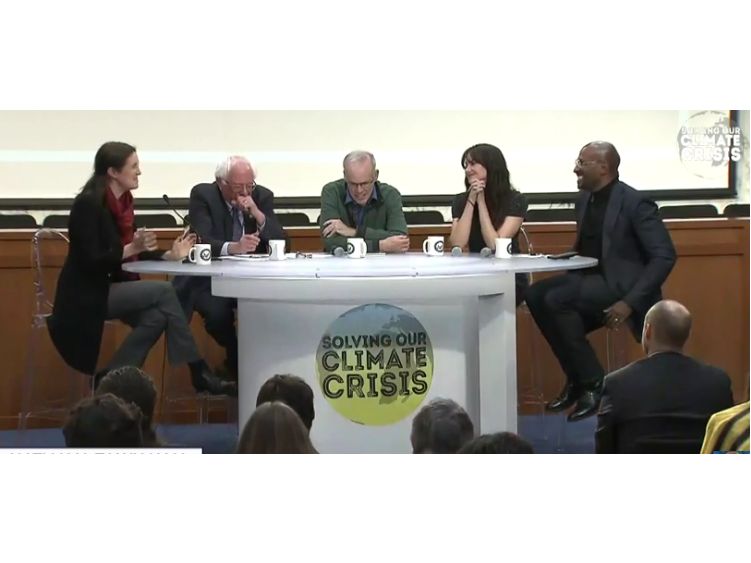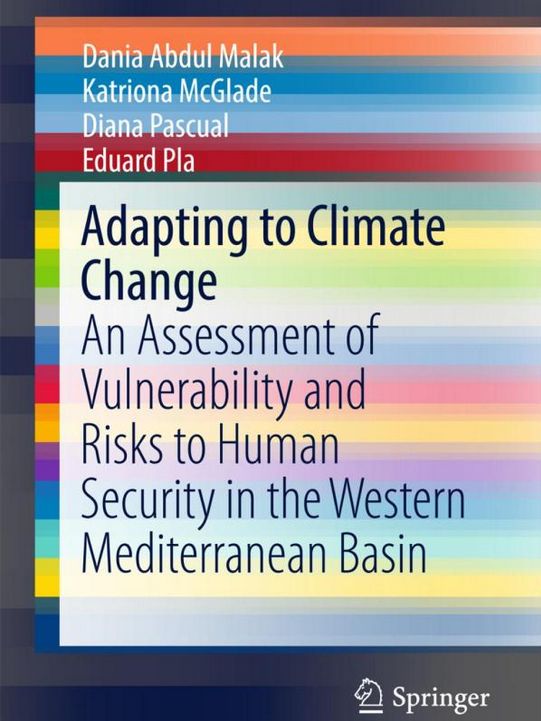Dr. Camilla Bausch Discusses Security Implications of Climate Change at the German Council on Foreign Relations (DGAP)
- Presentation
- Date
-
- Location
- Berlin, Germany
- Panel discussion
While Greta Thunberg was delivering her impassioned speech at the UN Climate Action Summit and during a time in which Germany occupies a seat in the UN Security Council, the Study Group on Strategic Issues of the German Council on Foreign Relations (DGAP) discussed the climate-security nexus. Dr. Camilla Bausch (Ecologic Institute) contributed her insights on the interface between climate and security, how it is addressed in the international climate context and highlighted some policy recommendations.
Climate change has implications for human security. It is often referred to as a threat accelerator. Especially in a fragile socio-economic context, extreme weather events, changes in precipitation patterns and the rise of the sea level can contribute critically to other stress factors. In combination, the factors can have implications for food security, contribute to water stress or trigger epidemics.
The energy transition needed for mitigating climate change also has geopolitical implications (e.g. because of its impacts on countries like Russia or Nigeria where GDP strongly relies on fossil fuels). New infrastructures needed for a low carbon economy may also raise – or lower – security risks (e.g. digital or physical attacks on integrated electricity grids). Last but not least, climate change and respective policies can have an impact on how to run military installations and operations.
The nexus between climate and security ihas already been recognized and discussed for some time. There are publications and strategic papers from both climate and security experts and practitioners. The first formal emergence of the topic at the UN Security Council was already in 2008. It is also an implicit topic in negotiations at the UN climate summits, e.g. in the context of Art. 8 of the Paris agreement, around topic areas like Loss and Damage and the Task Force for Displacement.
However, on a governance and a political level the links between the two groupings are comparatively weak. The Paris Agreement refer to the word "security" only once: in the context of "food security" in the preambular language. In the Security Council the combination of countries and interests does not make it easy to address the issue, and including it in a resolution seems to be ambitious in the current political setting of the wide-spread climate skepticism surrounding the US Senior Administration. But apart from the political challenges arising around questions of sovereignty, competency and power, the complexity of the issues and pressing short term demands make it difficult to develop a new integrated approach regarding the two issue areas.
Nevertheless, with climate change becoming more prominent in its immediate effects as well as in the political and economic debate, the interlinkages of debates are appearing to increase. The Munich Security Conference featured high-level debates on climate change and influential countries like Germany push it on the agenda e.g. of the G7 and the UN Security Council. In light of Germany’s current two-year term with the UN Security Council and its upcoming presidency of the European Council, Germany will be in a comparatively strong position to drive this issue on the international agenda. The situation in the Security Council in particular will nonetheless remain challenging.
Dr. Bausch underlined the importance of prevention of risks as a first priority, both from a climate and a security perspective. With the climate security nexus in mind, mitigating climate change has to be an overarching first priority. The geopolitical implication of a transformation to low carbon economies must be anticipated and managed. Taking into consideration that climate change is already impacting livelihoods in many countries, building up resilience in particularly vulnerable countries is an imperative. In this context, early warning systems, adequate risk assessments, adaptation measures and improved data management are important elements. In cases of displacement and migration, protection e.g. of human rights becomes pivotal. The Task Force on Displacement (TFD) under the Paris Agreement is mandated to develop recommendations for integrated approaches to avert, minimize and address climate change related displacement. In this context, it refers to key policies, including the 2018 Global Compact for Safe, Orderly and Regular Migration (GCM), the Guiding Principles for Internal Displacement, the Sendai Framework for Disaster Risk Reduction and the Nansen Initiative Protection Agenda. Last but not least, capacity building for relevant staff in administrations, including the Foreign Service, would be very helpful to best manage these old and new tasks.
The Study Group of the German Council on Foreign Relations regularly invites notable experts and representatives from politics, administration, and civil society to its meetings in order to discuss current foreign policy issues.
The meetings of the Study Group take place under Chatham House Rule.
Ecologic Institute's participation was kindly supported by Stiftung Mercator.






